

Gecić Law proudly announces the soft launch of its new office in Brussels, establishing a historic foothold in the capital of the European Union. With this step, the firm becomes the first independent law firm from Central and Eastern Europe and the Balkans to open a permanent office in Brussels – marking a significant milestone in our growth and our region’s deeper integration with EU legal and regulatory frameworks. Located at Avenue des Arts 56, the Brussels office will serve as a strategic bridge between Southeast Europe and the EU, enhancing our capacity to support clients in competition law, regulatory […]
Details
The European Parliament’s Committee on International Trade (INTA) gave backing to the European Commission’s plan to simplify the Carbon Border Adjustment Mechanism (CBAM), as part of the Omnibus I legislative package. The vote took place during an extraordinary session on April 23, 2025. A significant majority of MEPs supported the proposal and rejected proposed amendments. What Did INTA Approve? INTA endorsed a set of changes designed to ease the administrative burden of CBAM. These simplifications aim to help businesses comply while preserving the system’s environmental goals. Key proposed changes include: Exemption for Small ImportersImporters handling less than 50 tonnes […]
Details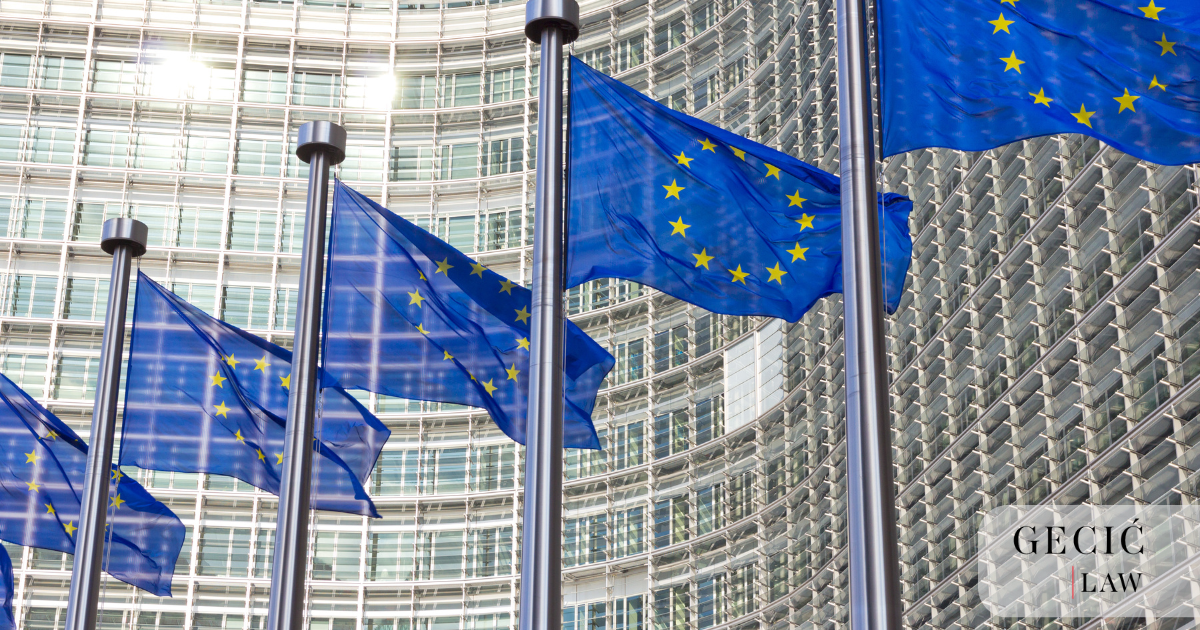
In an era of rapid technological advancements, geopolitical uncertainties, and climate imperatives, the European Union has recently introduced the Competitiveness Compass. This is a strategic framework to enhance its economic resilience and global standing. European Commission President Ursula von der Leyen announced the initiative at the World Economic Forum in Davos. It aims to address inefficiencies, boost innovation, and drive sustainable growth while ensuring the EU remains attractive for business and investment. A Holistic Approach to Competitiveness The Competitiveness Compass focuses on four core pillars: innovation, decarbonization, security, and reducing bureaucratic hurdles. These elements reflect the EU’s belief that prosperity […]
Details
To bolster Europe’s clean energy transition, the European Commission has recently announced a EUR 4.6 billion investment. This funding aims to advance net-zero technologies, electric vehicle (EV) battery cell manufacturing, and renewable hydrogen production. Thie initiative marks a pivotal step in the EU’s commitment to achieving climate neutrality by 2050. Investment Breakdown Net-Zero Technologies: A EUR 2.4 billion call for proposals targets projects that focus on decarbonization, including the manufacturing of components for renewable energy, energy storage, heat pumps, and hydrogen production. This effort aims to enhance Europe’s leadership in innovative, clean energy technologies. Electric Vehicle Battery Manufacturing: For the […]
Details
Last week, the European Council adopted new legislation to regulate Environmental, Social, and Governance (ESG) ratings providers. This marks a significant step in enhancing the transparency, reliability, and accountability of ESG ratings, which have become crucial in sustainable finance and investment decision-making. The regulation addresses the increasing demand for trustworthy ESG data amid criticisms about the sector’s lack of oversight and uniformity. Key Features of the Regulation Supervision by ESMA Under the new rules, ESG ratings providers operating in the EU must obtain authorization from the European Securities and Markets Authority (ESMA). This requirement also extends to providers outside the […]
Details
The recent case before the Court of Justice of the European Union (“CJEU”) could shake the world of football governance, urging FIFA to change its regulations. Defining the player-clubs’ relations was never an easy task. However, the football industry is continuously growing. FIFA, the sport’s governing body, implemented multiple rules to regulate the status and transfers of professional football players. However, specific articles of those regulations could contradict the EU principles of Competition Law and Freedom of Movement. Advocate General Maciej Szpunar published his opinion on this case, suggesting that specific articles potentially contradict the EU law. The case revolves […]
Details
The Council of Europe has adopted the world’s first international convention on artificial intelligence (“AI”) titled “Council of Europe Framework Convention on Artificial Intelligence and Human Rights, Democracy and the Rule of Law” (“Convention”), marking a significant step towards regulating AI technologies. The Convention is legally binding. Consequently, it ensures AI systems respect human rights, democracy, and the rule of law throughout their lifecycle. It includes provisions for transparency, accountability, and independent oversight, addressing potential risks and promoting responsible AI innovation. The Convention aims to create a balanced framework that encourages technological advancement while safeguarding fundamental freedoms and democratic values. […]
Details
The inaugural meeting of the informal Expert Group on the Carbon Border Adjustment Mechanism (CBAM) took place online on April 23, 2024. Hosted by the Directorate-General for Taxation and Customs Union (DG TAXUD), the meeting marked the beginning of a collaborative effort to guide the implementation of CBAM during its transitional phase and the definitive period, which is set to commence on January 1, 2026. The expert group comprises representatives from EU Member States, industry associations, NGOs, civil society, observers from third countries and international organizations. The session began with a welcome from DG TAXUD, acknowledging the participants’ commitment to […]
Details
After numerous delays, the European Parliament gave the green light today for the Corporate Sustainability Due Diligence Directive (CSDDD). This directive aims to hold companies accountable for any environmental or human rights violations in their supply chains. However, the final version of the CSDDD has been significantly watered down from its original proposal, much to the dismay of sustainability advocates. The CSDDD, also known as the CS3D, sets out a standard for corporate due diligence on sustainability in the EU. This primarily involves environmental and human rights concerns. Under the new rules, companies are responsible for their own actions and […]
Details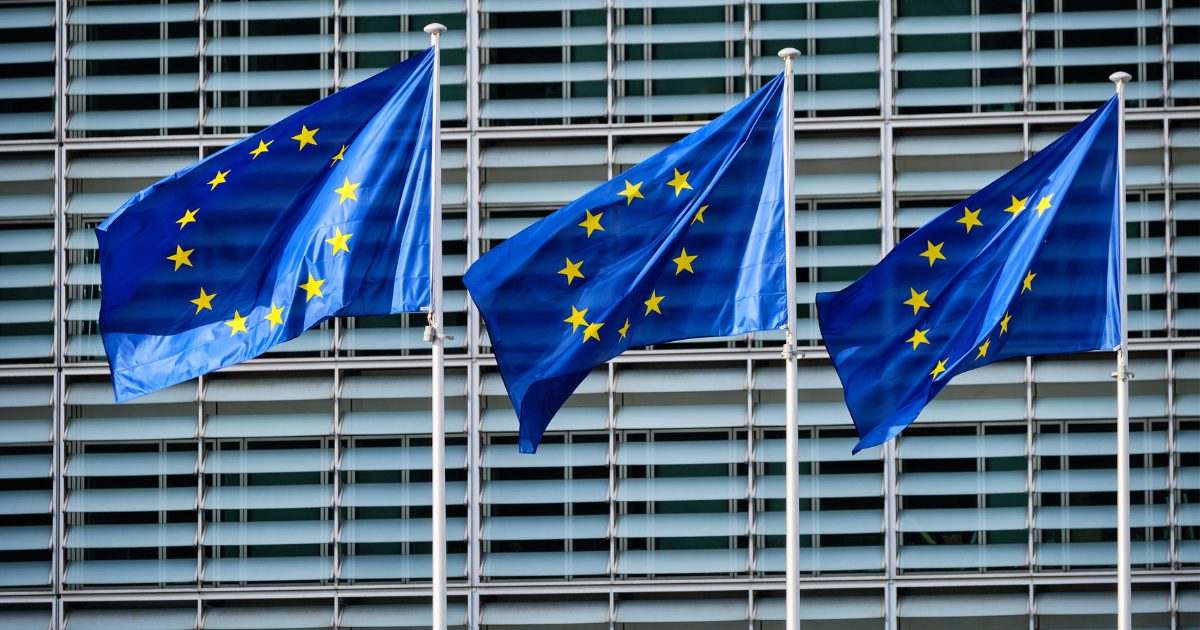
The European Union’s Corporate Sustainability Due Diligence Directive (CSDDD) has faced escalating challenges since its final draft release on January 20. Despite weeks of uncertainty and concerns over the proposal’s fate, supporters were buoyed by the European Council’s unexpected decision to schedule a vote for February 28. However, optimism quickly waned as the vote failed to garner sufficient support. This cast doubt on the CSDDD’s revival before the March 15 deadline for approval by the European Parliament. The Directive The CSDDD, also called the CS3D, aims to establish a corporate due diligence standard on sustainability issues within the EU. The […]
Details
New rules Fédération internationale de football association (“FIFA”), with its prerogatives in creating the legal framework for the game of football, enacted new changes in their FIFA Football Agent Regulations (“FFAR”). To create a more transparent, efficient, and just system, the new regulations aim to reinforce contractual stability, protect the integrity of the transfer system, and achieve greater financial transparency. However, some of the introduced provisions may potentially violate competition laws, leading to a reluctance among many countries to incorporate the FFAR into their national regulations. With many court proceedings in various national courts from England to Brazil and before […]
Details
What is the Digital Markets Act? The EU Digital Markets Act (DMA) is meant to make digital markets fairer and more competitive. How DMA does this is simple: the European Commission designates the “gatekeepers” (mostly the big tech companies), imposing on them new obligations such as mandatory interoperability of gatekeeper’s services and preventing the gatekeeper from favoring its products and services against similar services or products offered by third parties on the gatekeeper’s platform. A quick repeat of what it takes for a company to be a gatekeeper: strong economic position, significant impact on the internal market, and being active […]
Details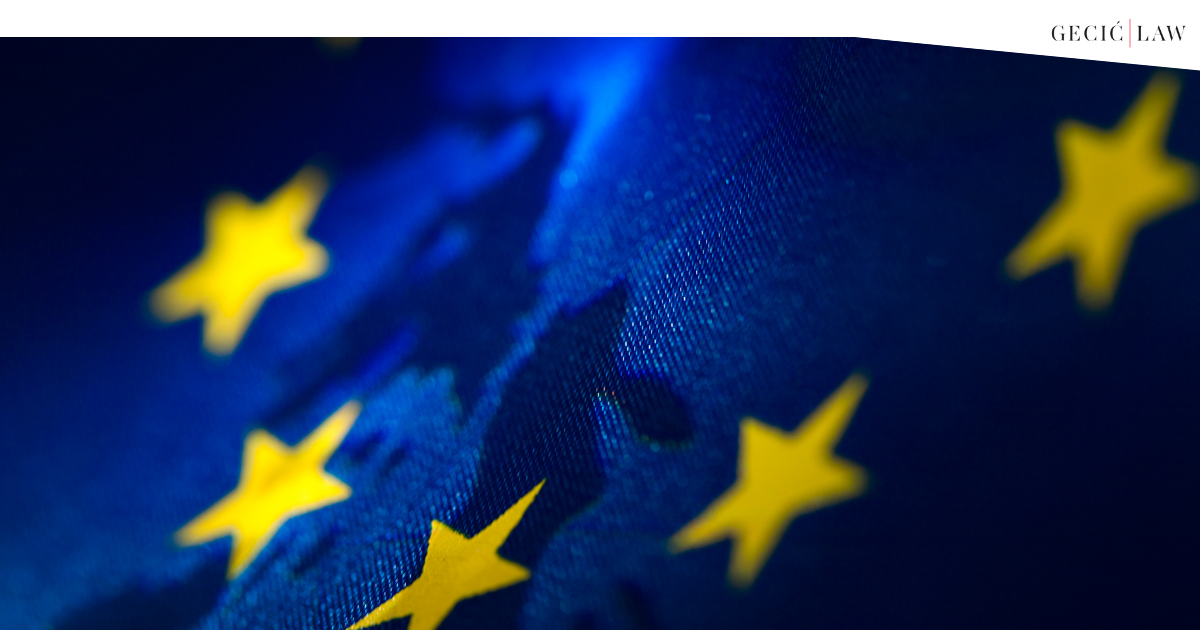
The European Union (EU) has introduced a growth plan to accelerate the accession of the Western Balkans. European Commission President Ursula von der Leyen unveiled a commitment of EUR 6 billion at the Western Balkans summit in Tirana. Out of this amount, two billion euros will be in grants and four billion euros in loans. However, specific details regarding the mechanisms of this growth plan are still pending clarification. The EU’s strategy is to bring the region closer economically before political integration. This would allow the Western Balkans to benefit from certain privileges. Benefits include the free movement of goods […]
Details
5G is the fifth-generation mobile network, which promises to lead to a revolution, particularly in transportation. This article focuses on connected and automated mobility (CAM), an offspring of 5G. CAM lets vehicles communicate with each other and with the surrounding infrastructure. Such communication can, in fact, enhance road safety, ease traffic jams, and cut CO2 emissions. With this in mind, countries worldwide are diligently working on developing 5G cross-border corridors. 5G cross-border corridors are networks that connect transportation routes. These routes, whether along roads, railways, or waterways, maintain 5G connectivity across international borders. This connectivity is vital for CAM’s full-scale […]
Details
In recent times, the European football landscape has witnessed a significant transformation. The changes have been catalyzed by an unexpected influence – financial subsidies pouring in from Qatar and the United Arab Emirates (UAE). These subsidies have not only captured the attention of football enthusiasts but have also raised concerns within the European Union (EU) regarding their impact on the continent’s football market. This article will explore these concerns’ intricacies, focusing on how the EU Foreign Subsidies Regulation (FSR) intersects with the football world. The Complaints It all started with the complaints from football national leagues in Europe. One of […]
Details
The European Union has formally unveiled today specific rules for importers on implementing the world’s first carbon border tax. These guidelines in the form of its Implementing Regulation were published today in the EU’s official journal, highlighting the processes to be followed by EU importers in light of the Carbon Border Adjustment Mechanism (CBAM) during its transitional phase. The Carbon Border Adjustment Mechanism is a groundbreaking initiative by the European Union. CBAM aims to level the playing field between EU producers who bear carbon pricing costs and foreign producers who don’t face these charges. It discourages businesses from seeking cheaper […]
Details
August 25, 2023, marks a monumental shift as the Digital Services Act (“DSA“) takes center stage, impacting industry giants like Amazon, Google, Apple, and TikTok. With 19 platforms and search engines, each having a minimum of 45 million users, the DSA takes action to uphold data privacy, combat disinformation, and eliminate online hate speech. This dynamic legislation aims to give users, including minors, enhanced rights and control over their online presence, fostering a high level of privacy and security. What’s the story? Back on April 25, 2023, the first designation decisions were made, designating very large online platforms (“VLOPs“) and […]
Details
Bogdan Gecić, Founding Partner at Gecić Law, was featured in eKapija for his insights on the immanent and profound transformation in both environmental and international trade regimes, propelled by the European Union’s groundbreaking Carbon Border Adjustment Mechanism (CBAM) regulation. As the CBAM takes effect on October 1, 2023, Bogdan detailed his insights for eKapija. The article is titled “The Revolutionary New EU Carbon Import Tariff: What Do You Need to Know?” The article explains the motivation and reasoning behind this unique regulation. With the CBAM, the EU pioneers the world’s first carbon border tax on imports in the EU. Accordingly, […]
Details
Introduction The European Union has initiated the world’s first carbon border tax, known as the Carbon Border Adjustment Mechanism (CBAM), in a strategic move to tackle the mounting concerns of climate change. The CBAM is designed to level the competitive landscape, ensuring that EU companies, which are already bearing the cost of their carbon emissions, remain on equal footing with enterprises originating from nations with minimal or no carbon emission charges. While the Carbon Border Adjustment Mechanism (CBAM) stands as a significant development in the realm of climate policy, its ramifications extend beyond environmental considerations, reshaping the contours of international […]
Details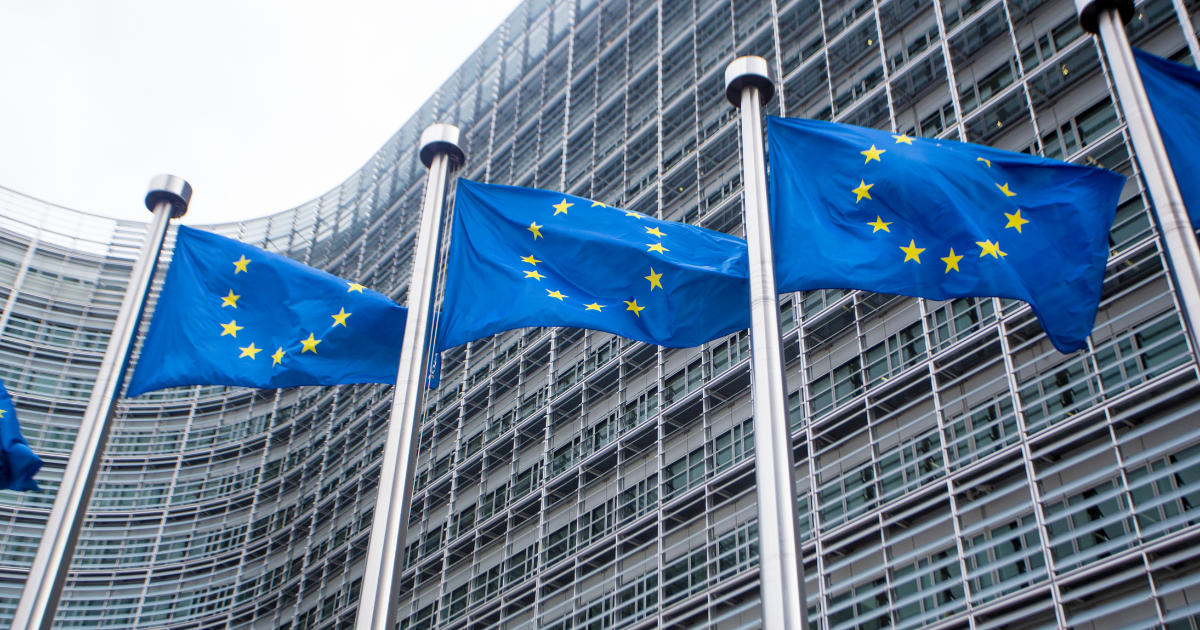
The Foreign Subsidies Regulation (FSR), one of the EU’s latest state aid instruments, entered into force on January 12, 2023. Now, after six months, it starts to apply. This regulation establishes rules to govern foreign subsidies that could distort the EU’s internal market. It empowers the European Commission (“Commission”) to investigate financial contributions provided by non-EU countries to companies operating in the EU. If these contributions are found to be distortive subsidies, the Commission can enforce corrective measures to remedy these effects. Our team provided a thorough overview of the regulation and its implications this article. In short, the FSR’s […]
Details
In December, the European Commission (“Commission”) issued a Statement of Objections (“SO”) to Facebook’s parent company Meta Platforms Inc. The Commission said that based on its preliminary view, Facebook had violated EU antitrust rules by distorting competition for online display advertising on social media linked to Facebook Marketplace. Marketplace, which Meta launched back in 2016, is a virtual place for Facebook users to discover, buy and sell just about anything, from vehicles, clothes, books, smartphones, and even property, within their local social community. The Commission’s preliminary theory of harm presented in the SO concludes that Meta abused its dominating positions […]
Details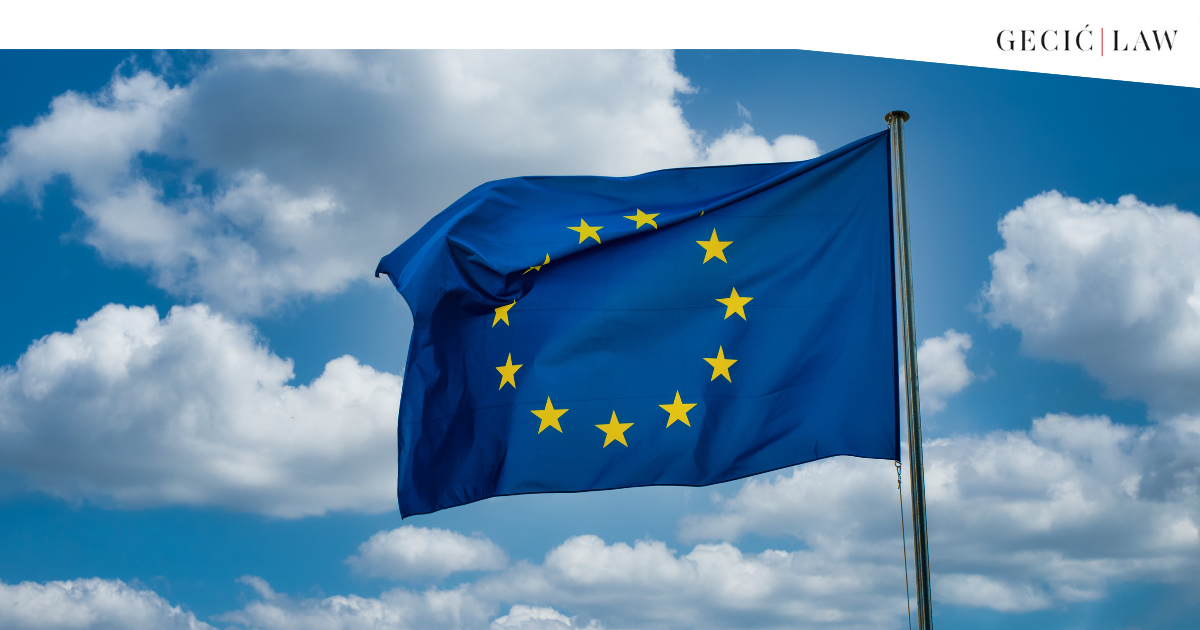
EU and Western Balkans leaders gathered in Albania last December for the EU and Western Balkans Summit to discuss cooperation and EU perspectives of the region. The Tirana Declaration (“Declaration”) was signed between the leaders of the Western Balkans Six and the EU Member States, with representatives of the EU Council and the EU Commission. The document comprises specific initiatives to strengthen regional cooperation in parallel with the EU accession processes. One of the Declaration’s critical topics was the Western Balkans’ commitment to fully implement the Green Agenda and develop a carbon pricing policy in the context of the EU […]
Details
In her keynote speech at the 2023 World Economic Forum in Davos, Ursula von der Leyen, EU Commission President, outlined yesterday the main pillars of the EU’s Green Deal Industrial Plan to boost Europe’s leadership in green technology on its road to carbon neutrality. “We know we have a small window to invest in clean tech and innovation to gain leadership before the fossil fuel economy becomes obsolete,” said von der Leyen. As the plan’s regulatory pillar, she announced a new Net-zero Industry Act to support the “greatest industrial transformation of our times” and keep up with strongly incentivized programs […]
Details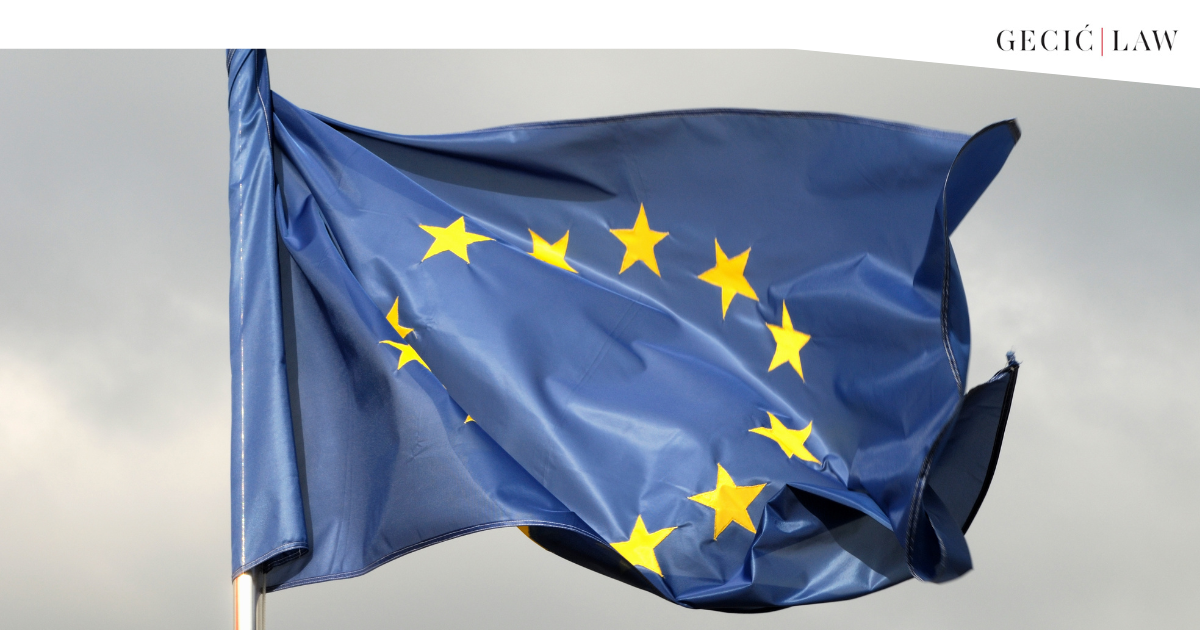
As anticipated for some time in the previous months, while having been agreed upon between the EU institutions, the Foreign Subsidies Regulation (Regulation) finally saw the light of day on January 12, 2023. Its application will commence on July 12, 2023. The Regulation offers new tools for the European Commission (Commission) to investigate financial contributions from non-EU countries to companies operating in the EU to prevent distortions in the internal market. This specific State aid regime provides for an extended application of EU rules and the Commission’s competencies beyond the EU borders. One of the notable features is that the […]
Details
The European Union is fast-tracking the road to a greener future as EU institutions reach provisional agreements on the Carbon Border Adjustment Mechanism (“CBAM”) and the EU Emissions Trading System (“ETS”). After round-the-clock negotiations between EU officials, the “Fit for 55” legislative package with the ultimate goal of reaching carbon neutrality by 2050 is now being finalized. What are the implications for non-EU countries? EU’s Climate Action Recognizing the threats of climate change, the European Union adopted a range of climate laws, which includes the ETS and the CBAM, as part of the revolutionary “Fit for 55” legislative package. In contrast to the […]
Details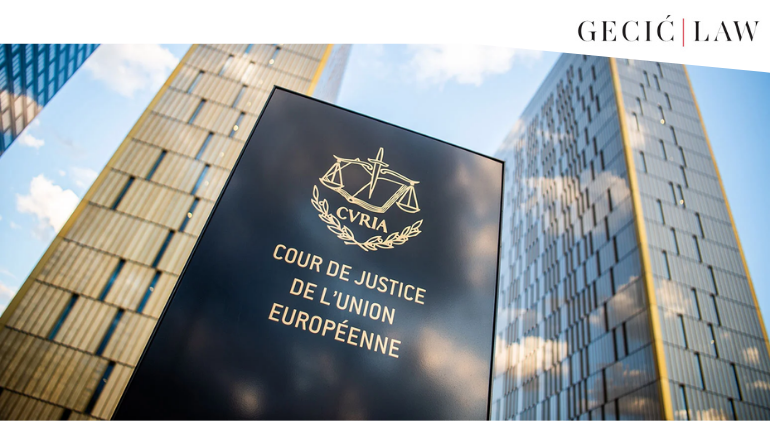
The Judgment of the European Court of Justice (“ECJ“) from November this year raised the issue of compatibility of proclaimed fundamental human rights with public registers of ultimate beneficial owners available to all interested parties (“Judgment“). According to the Fourth Anti-Money Laundering and Terrorist Financing Directive (the “Fourth AML Directive“), all European Union member states were obliged to make public the registers of beneficial owners of companies operating in their countries so that they can be accessed by any person who has a “legitimate interest.” Accordingly, in 2019, Luxembourg passed a law confirming this directive. It established a register of ultimate […]
Details
The European Commission (Commission) continues to work on implementing the Digital Markets Act (DMA). On December 9, 2022, the Commission published a draft regulation on implementing the DMA and annexes. Public consultations are currently underway until January 6, 2023. The Commission would like to consider the input of different publics and take on board their suggestions, comments, and proposals when finalizing this draft regulation. Feedback received will be published on the Commission’s website and must adhere to the rules for input and suggestions. To participate in the public consultation process, interested parties must register. The regulation aims to ensure fair, efficient, and complete […]
Details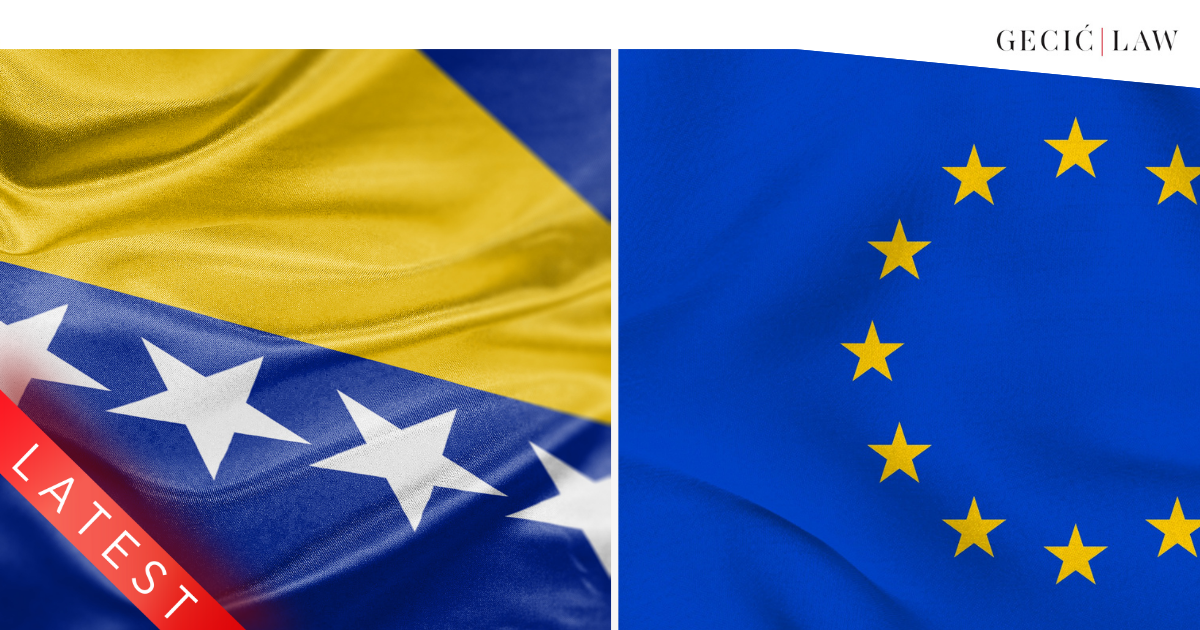
A significant and long-awaited day for Bosnia and Herzegovina! As announced by the Council of the EU, the EU General Affairs Council recommended granting the candidate status to Bosnia and Herzegovina. The European Council will make the formal decision on Thursday, December 15, at the summit of the leaders EU’s 27 in Brussels. It’s been six years since the country submitted its formal application for full membership in the EU back in 2016. The process is now nearing its conclusion, and yet another Western Balkans country is about to reach its primary goal – attaining candidate status as an essential step […]
Details
European Union (EU) and Western Balkans telecommunication operators signed a Roaming Declaration at the EU-Western Balkans Summit held on Tuesday in Tirana. According to the Declaration, Western Balkans – EU roaming charges will be reduced voluntarily from 1 October 2023, with subsequent reductions gradually leading to their complete elimination. The commitment was also reinforced as part of the Tirana Declaration, which was agreed upon at the Summit. The initiative is another crucial step in bringing the Western Balkans closer to the EU. It aims to enhance connectivity, mobility, and affordability of telecommunication services for individuals and businesses, contributing to more opportunities for […]
Details
On November 10, 2022, the European Parliament finally adopted the Corporate Sustainability Reporting Directive (“CSRD“). The CSRD intends to expand the application of corporate sustainability standards across the market by including an even larger specter of business entities compared to the application scope of the Non-financial Reporting Directive (“NFRD“). NFRD applied only to large companies with more than 500 employees. In contrast, the CSRD comes with larger ambitions and will apply not only to large companies but also to listed SMEs and third-country companies with significant operations on the EU market and a daughter company or a branch office in the […]
Details
The EU Digital Markets Act (DMA) entered into force on November 1, 2022, and it will start to apply in early 2023, while its “partner in crime,” the Digital Services Act, still awaits its moment in the limelight, announced to ensue in a year. Together they form a single set of new rules which aim to apply across the whole of the EU to create a safer and more open digital space. One may say it’s all about digital, but essentially, it’s all about undistorted competition in digital! A New Digital Era Begins with the DMA! The DMA rocked the tech […]
Details
The European Union (EU) and the Association of Southeast Asian Nations (ASEAN) signed yesterday in Bali the world’s first bloc-to-bloc Comprehensive Air Transport Agreement (CATA). Most EU member states so far have had bilateral agreements with some of the ASEAN countries, with different scopes and rules. However, very few had such arrangements with all the countries of ASEAN. The new agreement now includes all member states of each region and replaces all existing contracts with a unified framework, connecting more than one billion people. The agreement aims to revitalize air travel and transport between Southeast Asia and Europe, which has […]
Details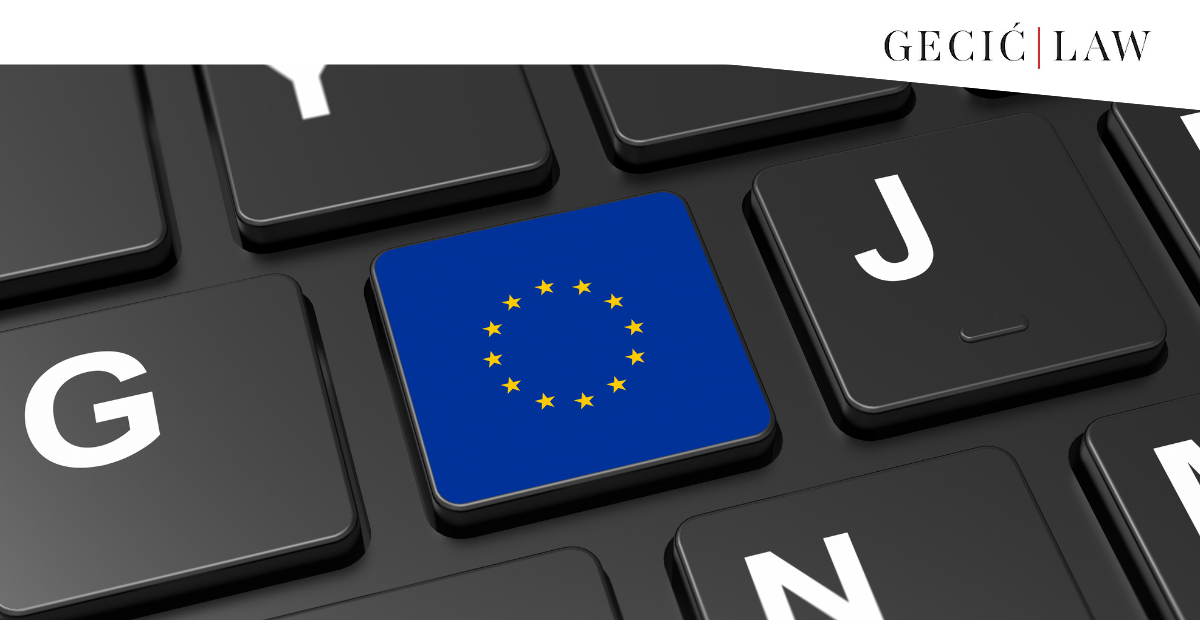
Europe is now fit for the digital age as the long-awaited Digital Markets Act (DMA) was published in the Official Journal on October 12. Adopted by the European Parliament in September, the DMA will enter into force on November 1 and start to apply in May next year. The act provides a framework to prevent the most prominent digital companies, the so-called “gatekeepers,” from abusing their market power, ensuring greater competition in digital markets, and sparking more innovation in the industry. The DMA will primarily target the world’s most powerful corporations in the IT industry, commonly referred to as the “Big Five” […]
Details
Newsflash! The time has come for universal chargers to hit it on! Following the provisional political agreement reached in June 2022 between the EU institutions, on October 4, 2022, the European Parliament passed a new law on universal chargers to ease reducing e-waste and enable more sustainable choices for consumers. What does this actually refer to? Namely, all small and medium-sized mobile electronic devices will need to be equipped with a USB Type C port. Thus, consumers will no longer have to use different chargers to charge their devices from different manufacturers. The agreement will be applied to […]
Details
Despite rapid developments in technology and business, EU laws on e-commerce have not been updated for more than 20 years. To keep up with the digital revolution, the EU Parliament („EP“) adopted the Digital Markets Act (“DMA”) and the Digital Services Act (“DSA”). The DMA was adopted in July 2022 and it will start to apply at the beginning of 2023. As for the DSA, it is expected to be implemented in early 2024. Why was the DMA adopted? This act provides a framework that is tailored to the major influence of the largest digital companies, known as “gatekeepers” – […]
Details
Building on our series of CBAM articles, we report shocking news from the EU Parliament. Members of the EU Parliament (“MEPs”) unexpectedly rejected a series of legislative proposals from the “Fit for 55” legislative package, including the EU Parliament’s negotiating position on the introduction of a Carbon Border Adjustment Mechanism (“CBAM”). Back in 2005, the EU established the EU Emissions Trading System (“ETS”) which has since become a cornerstone of the EU’s climate change policy and its most important tool for reducing greenhouse gas emissions. Since its inception, the ETS is constantly being reformed which was one of the goals […]
Details
In anticipation of the June 7 plenary session when the European Parliament will take on the CBAM proposal, we delve into the key ideas behind and the expected game-changing impact of the regulation on international trade. In this edition of our CBAM series, find out more about how this wind of change may affect consumers, businesses and economies across the globe. Why is the EU introducing a new carbon pricing policy? As a new policy, the Carbon Border Adjustment Mechanism (“CBAM”) is being developed to work in conjunction with the EU Emission Trading System (“ETS”) – a cornerstone of the EU’s […]
Details
What has been in the making for years now is set to become a reality very soon. The EU’s Carbon Border Adjustment Mechanism (“CBAM”) is expected to be adopted at the plenary session of the European Parliament, which will be held on June 7, 2022. The EU is finalizing its plans to introduce a charge at its border for carbon emissions associated with products sold in the EU. This is likely to mark a tectonic shift in international trade with far-reaching implications for businesses and economies around the world that rely on exporting their goods to the European Union. In […]
Details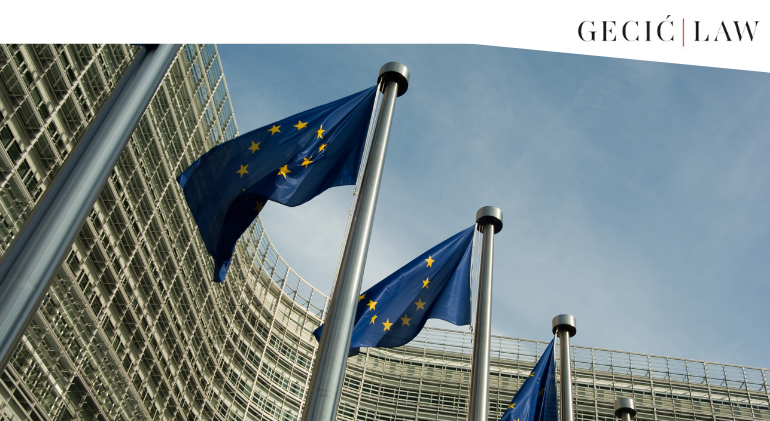
On May 10, 2022, the European Commission adopted a new Vertical Block Exemption Regulation (“VBER“) and related guidelines (“Vertical Guidelines“), following a detailed review of the previous Vertical Block Exemption Regulation dating to 2010 (“old VBER“). The objective of the VBER is to exempt agreements between undertakings operating at different levels of the supply chain (“vertical agreements”): if certain market share thresholds are met, and provided the agreement does not contain certain prohibited restrictions (“hardcore restrictions”). In other words, the VBER aims to recognize which types of vertical agreements are generally efficiency-enhancing and provide benefits to consumers. One of the […]
Details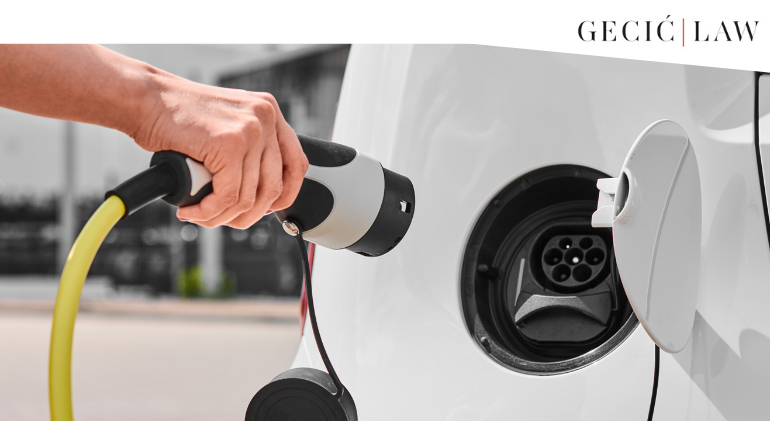
The Committee on the Environment, Public Health, and Food Safety (“ENVI”) decided on Wednesday to accelerate the shift to electric vehicles in Europe to reach increased climate ambitions. In July 2021, as part of the ‘’Fit for 55’’ package, the European Commission (‘’Commission’’) decided to propose an amendment to the Regulation 2019/631 to strengthen the CO2 emission performance standards for new passenger cars and new light commercial vehicles in line with the Union’s increased climate ambition. Currently, carmakers need to ensure that their average fleet of new cars emits no more than 95 grams of C02 a kilometer. Lawmakers have […]
Details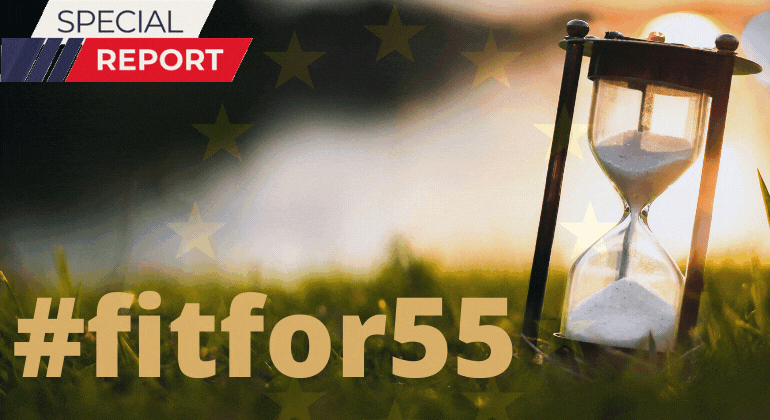
Today is Earth Day, a global celebration held on April 22 every year to show support for environmental protection. It began on April 22, 1970, and has since grown to include a diverse range of events coordinated globally, involving over a billion people in over 193 nations. On Earth Day 2016, the United States, the United Kingdom, China, and 120 other countries signed the historic Paris Agreement. To mark this important day, Gecić Law is bringing you a special Insights Report dedicated to the European Union’s legislative journey toward a carbon-neutral continent. In July 2021, the European Commission (“EC“) adopted […]
Details
What are shell companies? These are legitimate legal entities that do not own assets or conduct business operations. Although they are not illegal, they may be used illicitly. Shares of shell companies are not traded on stock exchanges. Most exist on paper only and are little more than a mailing address. That is why the European Commission (“EC”) has issued a draft directive on shell companies. Legal vs Illegal Use of Shell Companies Examples of the legal use of a shell corporation could be to serve as vehicles in cross-border transactions, such as mergers and acquisitions. However, shell companies are […]
Details
The Court of Justice of the European Union (“CJEU“) delivered two judgments on 22 March 2022. By those judgments, the CJEU ruled on the scope of the protection afforded by the prohibition of ne bis in idem principle in competition law. The CJEU recalled in both cases that the application of the ne bis in idem principle is subject to a twofold condition. First, there must be a prior final decision and secondly, the prior decision and the subsequent proceedings must concern the same facts. The CJEU clarified that the limitations may be imposed on the exercise of a fundamental right, such as the prohibition against double […]
Details
For several years in a row, Serbia is ranked among the leading destinations for foreign investors. According to the Greenfield FDI Performance Index, in 2019 Serbia was ranked first among 105 states observed by the index. A similar status was maintained throughout the subsequent years as Serbia ranked fifth in 2020, and sixth in 2021. According to the World Bank Doing Business rankings, Serbia is ranked among business-friendly jurisdictions, whose ease of doing business index grows regularly. The willingness to invest raises concerns regarding the legal and institutional framework of the host economy. Bilateral investment treaties (“BIT”) have been presented […]
Details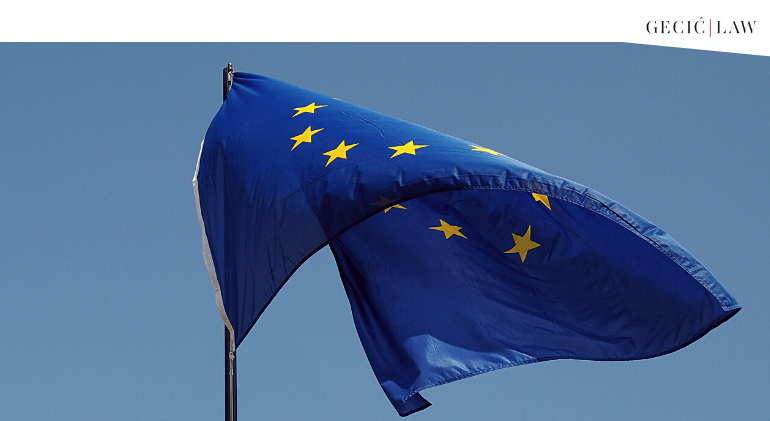
The European Commission has proposed the prolongation of the State aid Temporary Framework until 30 June 2022, in order to expedite the ongoing Covid-19 economic recovery in Europe. The Temporary Framework was initially adopted on 19 March 2020 and to this date, it was amended and prolonged five times (more information available here and here). Margaret Vestager, the Executive Vice-President, who is in charge of the competition policy said that we are finally seeing improvements in the EU economy after the big crisis that hit the EU due to Covid-19. She also added: ’’[W]e need to be aware of disparities […]
Details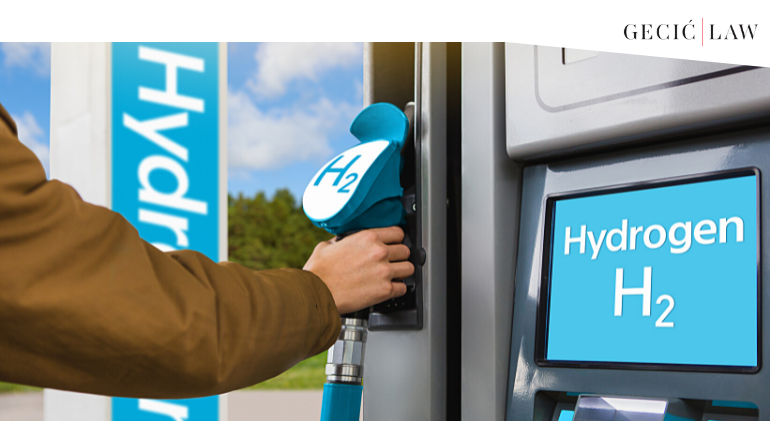
It is almost impossible to remain unfazed by the increasing detriments of global warming. To make matters worse – the worst is yet to come, and we can only mitigate the unavoidable consequences. To this end, the European Union (“EU”) has sought to develop a strategy for combating climate change and global warming. The children of this effort are several significant legal acts. As part of the “Fit for 55” initiative, the EU wants to reduce net greenhouse emissions by 55% by 2030. So, here’s where we get to the hydrogen economy. The global economy is currently based on hydrocarbons […]
Details
A phenomenon known as the Internet of Things (“IoT”), which has been at the forefront of the global tech changes, recently caught the European Commission’s (“Commission”) attention. The Commission’s Preliminary Report and Q&A on this tech & business sector is a big step towards acknowledging IoT as a market of the future, while simultaneously pointing out some potential dangers of this groundbreaking technology. Internet of Things – a Brief Explanation Let’s imagine this situation: you are not only an ardent coffee drinker but also a sleepyhead. Your alarm wakes you up at 7.00 am. You have little precious time to […]
Details
The European Commission (“EC”) adopted the Fit for 55 climate action plan on Wednesday, announcing a legislative package that aims to cut carbon emissions in the European Union (“EU”) by 55% by 2030, compared to levels measured in 1990. It also calls for action to make the continent carbon neutral by 2050. The Fit for 55 package includes provisions on expanding the EU Emissions Trading System to charge for carbon emissions in more sectors. Additionally, it proposes Effort Sharing Regulation and prescribes new emissions-cutting targets per Member State. It also calls for an increase in renewable energy sources use, creates […]
Details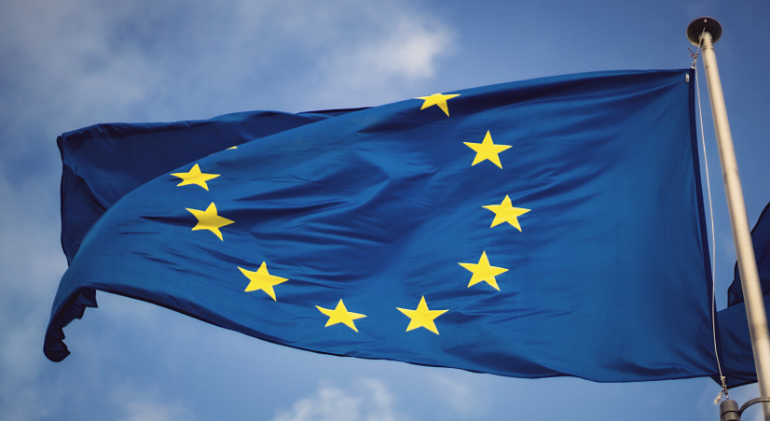
At the event hosted by the API/IPA international press association, Slovenia revealed the priorities of its upcoming presidency of the Council of the EU and the Fit for 55 legislative package stole the spotlight all for itself. Before leaning into the story of Fit for 55, let us make a quick turn to the conference held just a few days ago. Slovenia is taking over the Council of the EU presidency for the next six months. The country’s Permanent Representative to the EU Mr. Iztok Jarc and his deputy Ms. Tamara Weingerl-Požar laid out the priorities of the presidency. Of […]
Details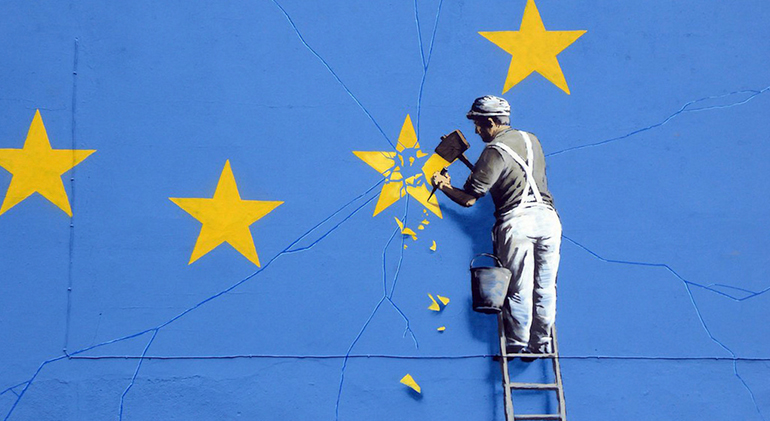
A rainy tale of two e-mails The former Foreign Secretary and Mayor of London, Alexander Boris de Pfeffel Johnson, also known as “Boris Johnson”, was sitting on his chair in front of his laptop on a rainy February day in 2016. He had two word files in front of him. With a scent of political mysticism, and a flash of destiny overwhelming his Etonian eyes, he had to choose which file to send to the Sunday Times, to file that will turn into an article that will grant him the key to his favorite immovable property – 10 Downing Street […]
Details
For the second year in a row, the Chillin’Competition conference drew practitioners, scholars and regulators from across Europe with a promise of an unparalleled array of distinguished speakers focusing on the topic of the neutrality principle and its role in competition law. And it certainly delivered! Alfonso Lamadrid, one of the founders of the Chillin’Competition blog (seen giving the opening remarks above), started the conference by stressing the importance of discussing the concept of substantive neutrality, its meaning and the scope of application in different fields of competition law. Keynote Address – Margrethe Vestager Keynote speaker Margrethe Vestager, EC Commissioner […]
Details